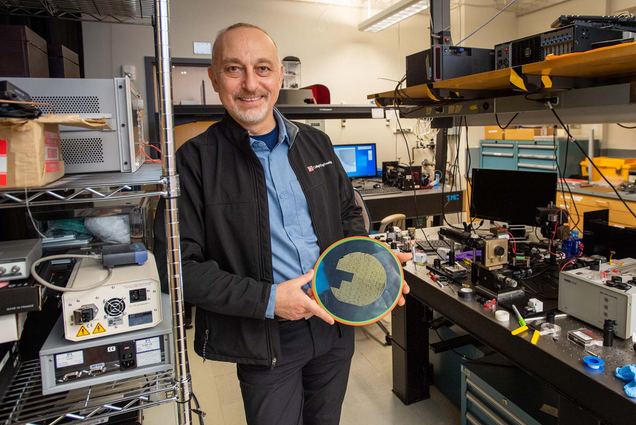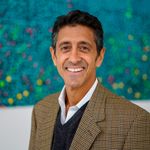BU Innovator of the Year’s Advice for Aspiring Academic Entrepreneurs? Start by Listening

Dr. Selim Ünlü, Professor of Electrical & Computer Engineering (ENG), was named 2021 BU Innovator of the Year for his pioneering work developing devices and technologies that help find security flaws in the construction of computer chips and detect viral pathogens in medical samples. Ünlü holds 18 patents and has helped launch three companies, all focused on using light to make precise measurements.
How did he get where he is, and what can other faculty learn from his journey? In this Q&A, Dr. Ünlü reflects on two decades of entrepreneurship and the steps he took to become the flourishing innovator he is today.
What’s one piece of advice you have for other aspiring academic innovators?
It takes a village. The professor will need the students, postdocs with the talent and fire in the belly for entrepreneurship. It only is possible if not only the institution and but also the professor’s group and lab have the right culture for innovation.
What were the first steps you took at BU towards broadening the impact of your ideas beyond the lab?
Protecting the intellectual property (IP), filing the patents—this is something I was not used to doing as a PhD student but I learned its importance during my early career at BU. The first step must be protecting the IP. If you rush to publish then it’s too late. There is a pressure to publish, I realize that, especially when you’re on a tenure track. But if you rush to disclose your newest ideas to your colleagues at a conference before protecting them, that will be a hurdle impossible to overcome for commercialization. Faculty should understand that protecting the IP is not a difficult or laborious process. BU Technology Development (OTD) will work with you to file a provisional.
Finding and seizing opportunities for technology transfer-specific funding is an essential early step. If IP is 1a, the right kind of funding is 1b. I was born as an engineer but could not move forward with engineering innovation without funding meant for technology translation. I credit the Photonics Center, OTD, BUNano, IUCRC, and National Science Foundation Technology Translation grants. Internal and external funding is available for these efforts.
Who did you reach out to and what happened next?
OTD was very highly enabling for the next steps. There is no recipe and you never know where the opportunity will come from; the key is flexibility and perseverance.
My first attempt at commercialization 20+ years ago was on photodetectors. It was completely based on external pull. People read a trade magazine coverage of our research publications and called to see if there was a technology available commercially. We reacted but our first attempt died with the telecom bust.
The second attempt was Zoiray, led by David Bergstein—a student with a fire in the belly. It died because 1) the 2008 financial crisis and 2) the technology was not ready. But every failure is a valuable experience.
The third attempt was NanoView, led by George Daaboul and David Freedman. I assembled my interested students and postdocs in a group to discuss commercialization. I took a sidestep because of administrative responsibilities at the time. Knowing when to step aside is important. You can’t have a chokehold on everything. Most recently I caught the fever myself with iRiS [one of Dr. Ünlü’s inventions, Interferometric Reflectance Imaging Sensor (IRIS) is a biosensing technique that can help researchers analyze biomolecules with high sensitivity].
Do you have any advice for working with OTD?
Number one is: listen. Recognize that professors don’t know everything. We often think we know what’s best but when it comes to commercialization there are many things we don’t know. It is essential to be open and transparent. Recognize that OTD and faculty are on the same side; we are trying to make BU technology impactful. Build a personal relationship with people at OTD. For many years I’ve known Michael Pratt [Managing Director of OTD]. I can pick up the phone and call him when I have a question and a quick answer and his guidance has helped me tremendously.

Rana K. Gupta formerly served as director of faculty entrepreneurship at Boston University. He helped BU researchers bring technology and other research breakthroughs to the marketplace to increase their impact through programs and workshops, one-on-one consulting with faculty, educational resources, and community building among BU innovators.